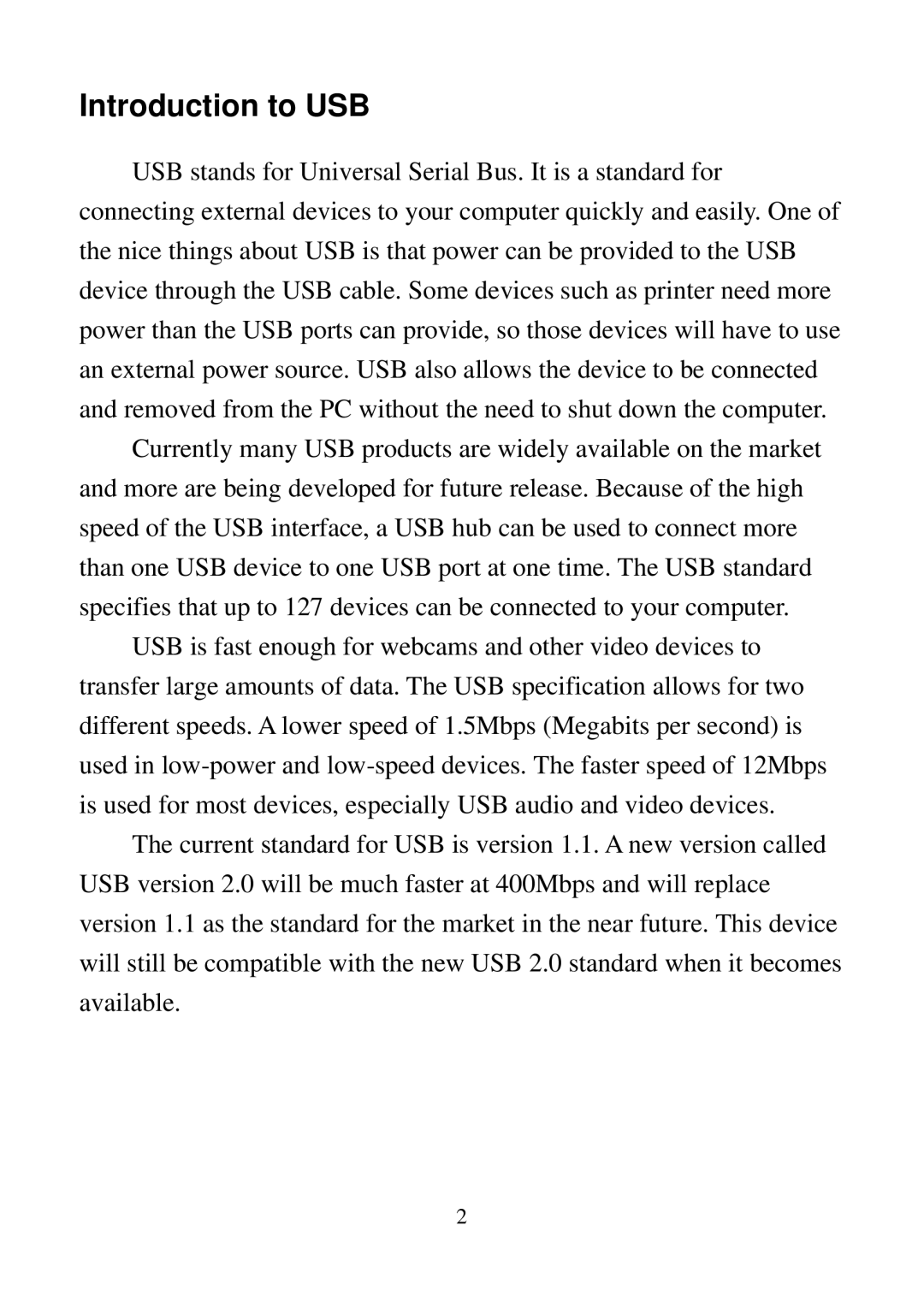Introduction to USB
USB stands for Universal Serial Bus. It is a standard for connecting external devices to your computer quickly and easily. One of the nice things about USB is that power can be provided to the USB device through the USB cable. Some devices such as printer need more power than the USB ports can provide, so those devices will have to use an external power source. USB also allows the device to be connected and removed from the PC without the need to shut down the computer.
Currently many USB products are widely available on the market and more are being developed for future release. Because of the high speed of the USB interface, a USB hub can be used to connect more than one USB device to one USB port at one time. The USB standard specifies that up to 127 devices can be connected to your computer.
USB is fast enough for webcams and other video devices to transfer large amounts of data. The USB specification allows for two different speeds. A lower speed of 1.5Mbps (Megabits per second) is used in
The current standard for USB is version 1.1. A new version called USB version 2.0 will be much faster at 400Mbps and will replace version 1.1 as the standard for the market in the near future. This device will still be compatible with the new USB 2.0 standard when it becomes available.
2
